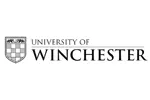About PGCE Primary, PGCE - at University of Winchester
The Postgraduate Certificate in Education (PGCE) Primary at Winchester is well established and it enjoys a high professional reputation. The overall aim of the programme is to produce high quality entrants to the teaching profession who become successful classroom practitioners. It offers closely integrated and progressive training including both University-based and school-based learning.
If English is not your first language: IELTS 6.5 (in all elements) or a TOEFL score of 575 (paper-based) or 232 (computer-based) or equivalent
Programme ContentBackgroundThe PGCE Primary is a postgraduate programme of Initial Teacher Training (ITT) leading to the award of either Postgraduate Certificate in Education (includes M level credits) or Professional Graduate Certificate in Education, both including the recommendation of the award of Qualified Teacher Status (QTS). This programme is validated and awarded by the University of Winchester. The PGCE programme may be studied full-time over one year or part-time over two years. The programme is modular with taught modules based at University and school placement modules to the equivalent of a minimum of 18 weeks based in Partnership Schools.
Entry requirementsStudents are advised to access the Training and Development Agency for Schools (TDA) website located at www.tda.gov.uk for general information. This guidance is based on the TDA requirements for gaining Qualified Teacher Status (QTS) and identifies the minimum academic requirements that candidates must meet to be eligible for admission. Please ask the Course Enquiries and Applications team for further information including details of the qualifications, experience and the personal qualities looked for in applicants.
Applicants are required to satisfy interviewers that they possess the physical and mental agility to meet the strenuous demands of teaching. Recent and relevant experience in a maintained primary school is a key factor to both success in selection for interview and for subsequent acceptance onto the programme, as the interview process is designed to explore understanding of current practice in primary schools.
The selection process includes a written task, an individual interview, a group task and a group presentation. Students are invited to notify us of any special arrangements that are required and make contact with Course Enquiries and Applications to discuss the type of support which may be provided to students.
Successful candidates at interview will be required to complete a health check form and to obtain enhanced CRB clearance to ensure they meet the government guidance for ensuring that the health, safety, wellbeing and educational progress of pupils are not jeopardised.
The PGCE Primary prepares students to teach across the age range of 5-11 and they undertake training placements in two age phases.
Students undertake studies in the pedagogy of all elements of the primary curriculum and Professional Studies alongside School Experience placements.
Full-time study is arranged to be consistent with the primary school year and starts with an initial two-week placement in a school of the student鈥檚 choice. Students are provided with a handbook to guide observations and activities.
Part-time study nomrally takes two years.
The part-time route has a substantial amount of blended/e-learning involved, for which a broadband Internet connection is essential.
AssessmentAt key points in the programme students submit module assignments and undertake periods of assessed school practice. To obtain QTS, students are also required to pass the TDA Skills Tests in English, Mathematics and ICT.
Tutor supportAll students are allocated a personal tutor to support them in their progress through the course.
CareersThe PGCE Primary programme at Winchester is well established and enjoys a high professional reputation with a proven track record, including high rates of application, success to graduation and employment, plus a grade 1 from Ofsted. The introduction of a part-time route has widened access and shown itself to be a valuable route for those students who are not able to study full-time.

